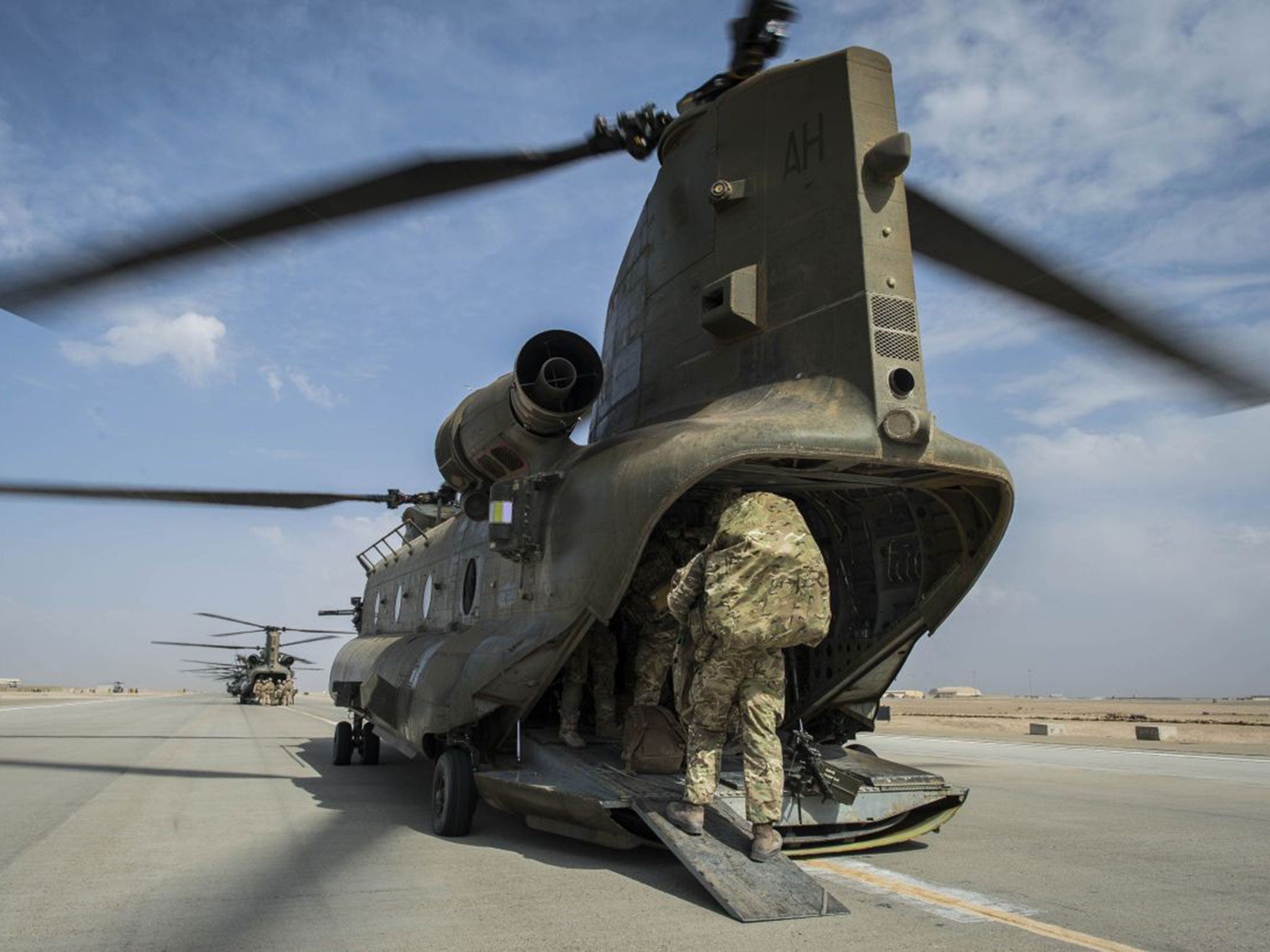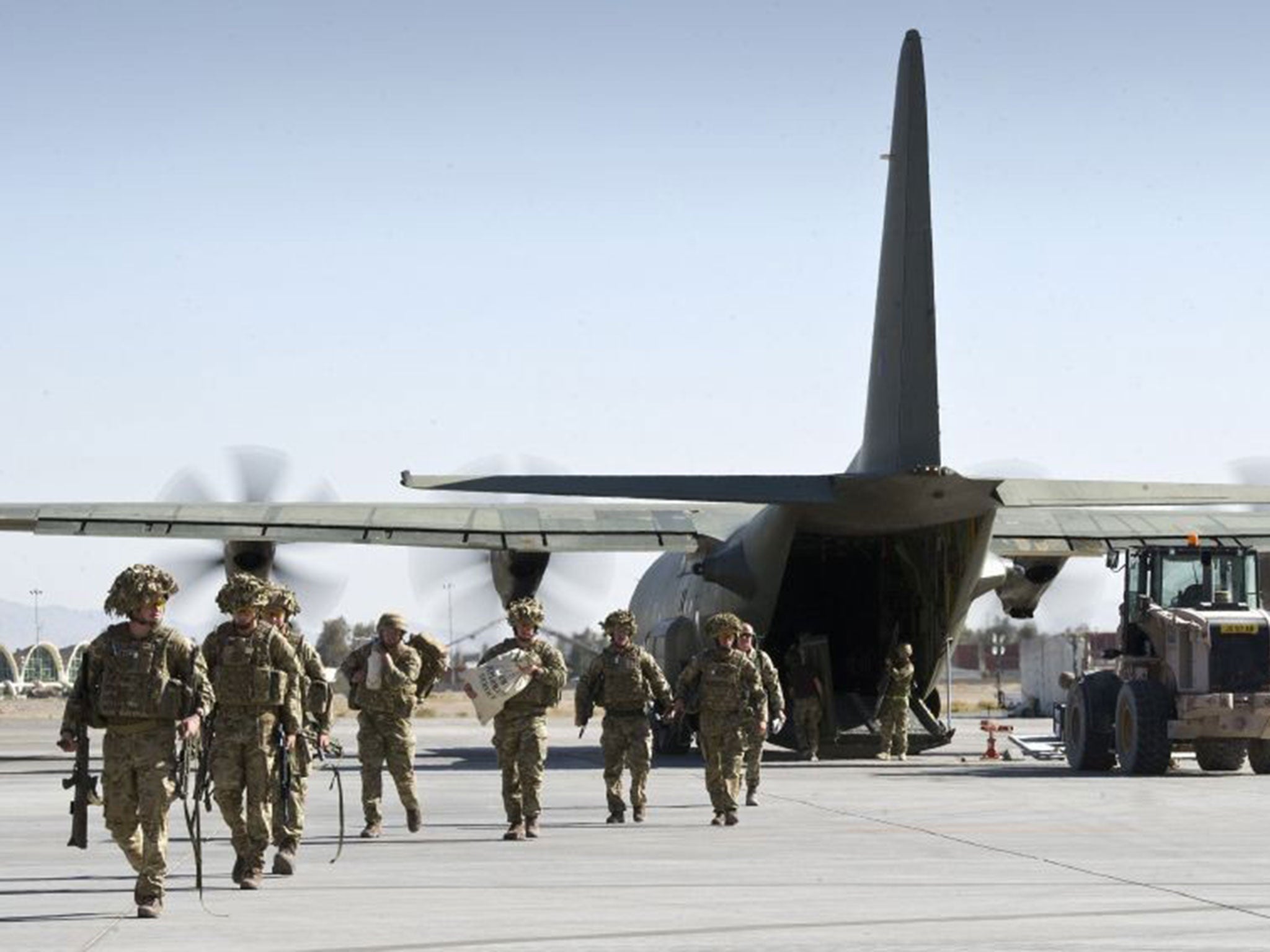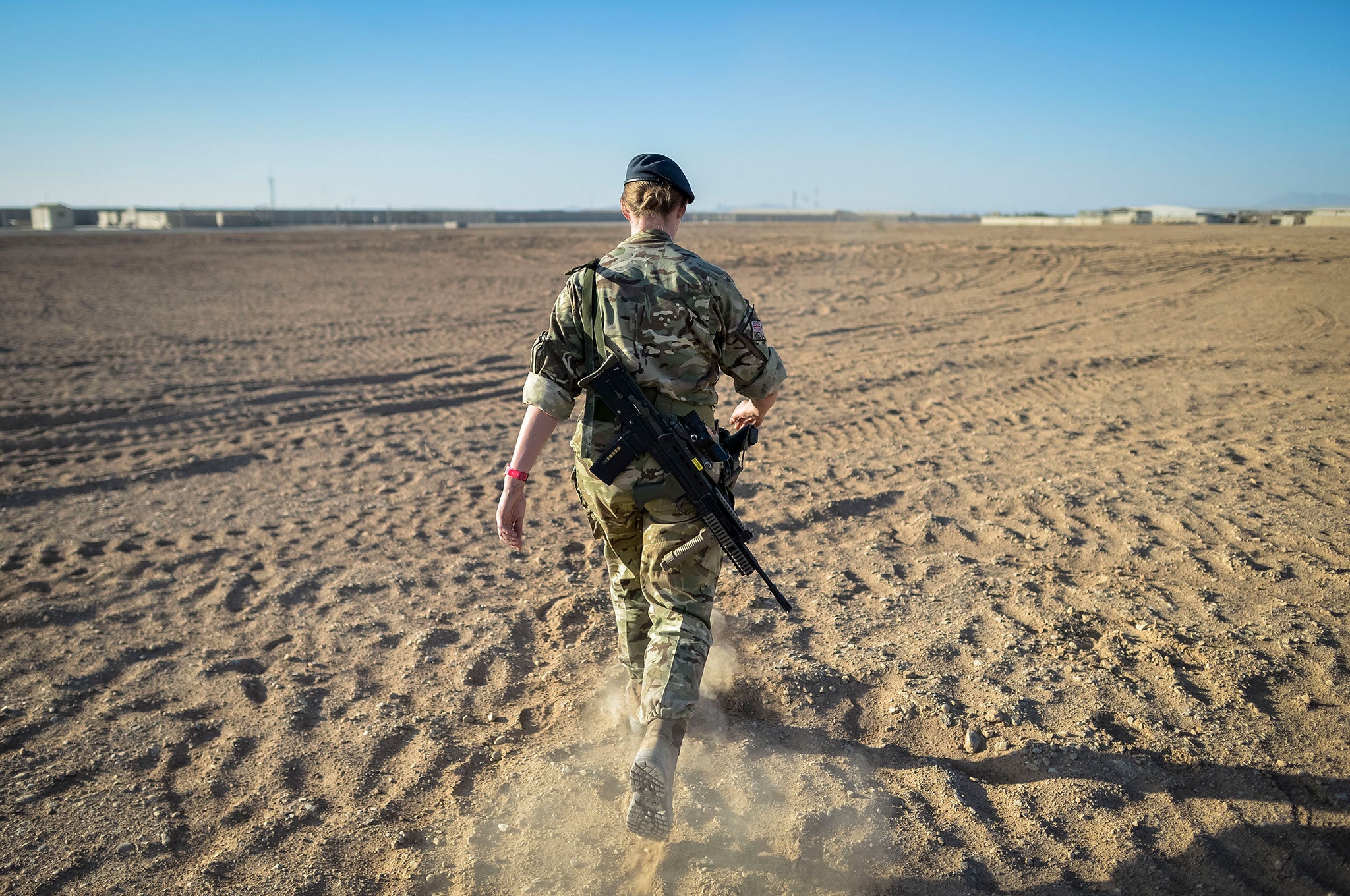Last British soldiers leave Afghanistan: 'It's a relief to be getting out of there'
Soldiers said they believed the Afghan army was ready to take over operations

Your support helps us to tell the story
From reproductive rights to climate change to Big Tech, The Independent is on the ground when the story is developing. Whether it's investigating the financials of Elon Musk's pro-Trump PAC or producing our latest documentary, 'The A Word', which shines a light on the American women fighting for reproductive rights, we know how important it is to parse out the facts from the messaging.
At such a critical moment in US history, we need reporters on the ground. Your donation allows us to keep sending journalists to speak to both sides of the story.
The Independent is trusted by Americans across the entire political spectrum. And unlike many other quality news outlets, we choose not to lock Americans out of our reporting and analysis with paywalls. We believe quality journalism should be available to everyone, paid for by those who can afford it.
Your support makes all the difference.The last British soldier has left Afghanistan as the UK completes its withdrawal from a war that killed 453 servicemen and women and up to 21,000 civilians.
Today was dubbed “B-Day”, marking the pull-out from Camp Bastion in Helmand Province, and the handover to the Afghan National Army.
Michael Fallon, the Defence Secretary, said the army was leaving with “heads held high” and insisted the 13 years had seen “progress”.
“We leave Helmand in good order, having transferred Camp Bastion to the ANA to use alongside their own Camp Shorabak which will allow them to continue to ensure security and stability in that part of their country,” he added.
“Thanks to our Armed Forces and our Afghan and coalition allies, Afghanistan is no longer a safe haven for terrorists.”
About 300 British soldiers and airmen as well as more than 500 US Marines left in a series of 18 flights under intense security because of fears of a Taliban attack.
The very last British serviceman to depart was Wing Commander Matt Radnall, 42.

“The adrenalin is still flowing,” he told Deborah Haynes of the Times. “That is the highlight of 24 years with the RAF regiment without any doubt.
“It has been an extraordinary morning. It started very early and it was full on from the word go.
“The end of each six-month tour we look forward to going home and there is a sense of finality for each individual as you finish that tour but for this one in particular, it is a real sense of occasion about it.”
There would be time for reflection on “the satisfaction of having achieved what we set out to achieve” after the adrenaline dropped, he said.
On the same day, US forces handed over Camp Leatherneck, which adjoins Bastion.

Major-General Sayed Malouk, Commander of the 215 Corps of the Afghan army said he wanted to pay his condolences to the families of all the British men and women who had been killed.
“I would love to go and see all those family members of those who sacrificed their lives for the Afghans and see them and talk to them and I pray to God those who are injured will be cured soon and be able to do all they want,” he said.
“I wish them all the best, especially all those mothers who sent their sons right here to secure this nation and to provide safety and security for the Afghan people.
“I know how hard it is for them when their sons don't go back.”

Camp Bastion, built in early 2006, was the hub of British and coalition forces operations in Helmand Province.
At the height of the UK operation it was the centre of a network of 137 bases in the region, all of which have now been handed over to the Afghan National Security Forces or taken apart.
The UK has had a military presence in Afghanistan since October 2001, when troops were deployed as part of the Nato response to the 9/11 terror attacks.
Southern Afghanistan became the focus of British operations in April 2006 aimed to tackle a growing insurgency in the region.
Camp Bastion, the largest base in Helmand, will continue to be used by the Afghan army as a training base but will be renamed.

Senior Aircraftsman John Downing, 29, was on the last RAF helicopter out of the base.
“It was an honour. It was tiring. Relief to be getting out of there,” he said.
“We had an overview of Bastion, what we have left behind, and hopefully the Afghans will continue our work. We'll see how that one turns out.”
He did not rule out British forces returning but said the Afghans were now “strong enough” to continue the work.
Senior Aircraftman Kristian James, who did the last watchman shift in a patrol tower, said it “feels good” to be going home.
“I think it will be a very good feeling to leave,” the 21-year-old said. “My father and my brother both served out here. It is a proud feeling to be a part of it.”
Corporal Christopher Holmes, 35, who is returning home to Newcastle, said the end “couldn’t have come quick enough”.
“It was amazing leaving,” he said. “It was just a huge relief. A massive relief - it's done, it's over.
“The British army has left, the Americans are leaving, there is no more Afghanistan.”
Additional reporting by PA/The Times
Join our commenting forum
Join thought-provoking conversations, follow other Independent readers and see their replies
Comments